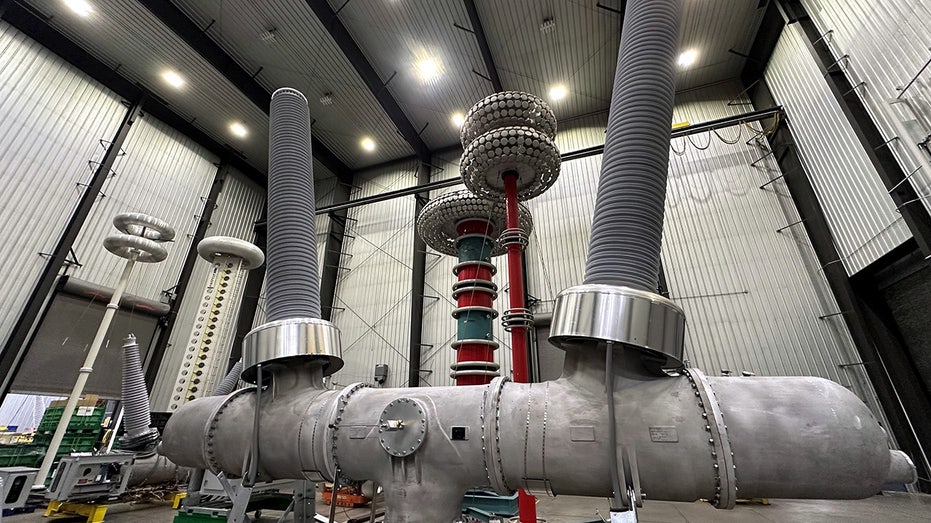GE Vernova, the energy spin-off of GE, is investing an additional $80 million in its flagship grid solutions factory in Pennsylvania over the next two years to modernize the electric grid and meet growing demand.
The investment will create 250 jobs at the leading grid solutions factory in Charleroi. It will help manufacture additional high-voltage switchgear products essential to the operation of the country’s electric grids.
GE Vernova’s technology helps produce over half of the power in the United States. The company employs more than 18,000 workers at 18 U.S. manufacturing facilities across the nation.
ENERGY GIANT ANNOUNCES MAJOR INVESTMENT IN US TO HELP MEET SURGING POWER DEMANDS
Since January, the company announced a total of $680 million in U.S. investments, which will lead to the creation of 1,750 new jobs. In Pennsylvania, it announced plans to invest up to $100 million, creating 700 jobs at factories in the state.
“These new jobs and investment reflect our ongoing commitment to not only building critical grid infrastructure with American workers, but reindustrializing Pennsylvania’s proud manufacturing legacy,” GE Vernova CEO Scott Strazik said. “They will also help strengthen our domestic supply chain, improve national security, and boost global competitiveness by closing a crucial gap.”
TRUMP ANNOUNCES LARGEST AI INFRASTRUCTURE PROJECT ‘IN HISTORY’ INVOLVING SOFTBANK, OPENAI AND ORACLE
Aside from its Charleroi facility, GE Vernova announced on Tuesday that it has received approval to provide seven of its high-efficiency 7HA.02 natural gas turbines to the Homer City Energy Campus, which was previously the largest coal-burning power plant in Pennsylvania. It is now being transformed into a more than 3,200-acre natural-gas-powered data center campus that will provide up to 4.5GW of electricity aimed at meeting the demand for artificial intelligence and high-performance computing needs of innovative technology companies.
The Homer City Energy Campus is expected to be finished in 2027.
“The Homer City project shows what smart energy investments can achieve — delivering more reliable, affordable power for all, creating thousands of skilled jobs, and positioning Pennsylvania to help lead the next era of AI,” Strazik said.
These investments come as the demand for electricity reaches an all-time high, significantly due to the power demands of AI.

The rapid increase in electricity demand is primarily driven by data centers that are necessary for training, deploying and running artificial intelligence models, according to Flynn and Rob Thummel, senior portfolio manager at Tortoise Capital.
Thummel told FOX Business last month that the data centers have massive computing power that perform the tasks required for AI applications to function, but they rely on energy infrastructure to generate, transmit and distribute electricity.
Phil Flynn, senior energy analyst at The Price Futures Group and a FOX Business contributor, said data center electricity consumption has tripled to 176 terawatt hours in the past decade and may double or triple again within three years.
The International Energy Agency projects that the U.S. economy will consume more electricity in 2030 for processing data than for manufacturing all energy-intensive goods combined, including aluminum, steel, cement and chemicals, in large part because of the demands of artificial intelligence processing.
